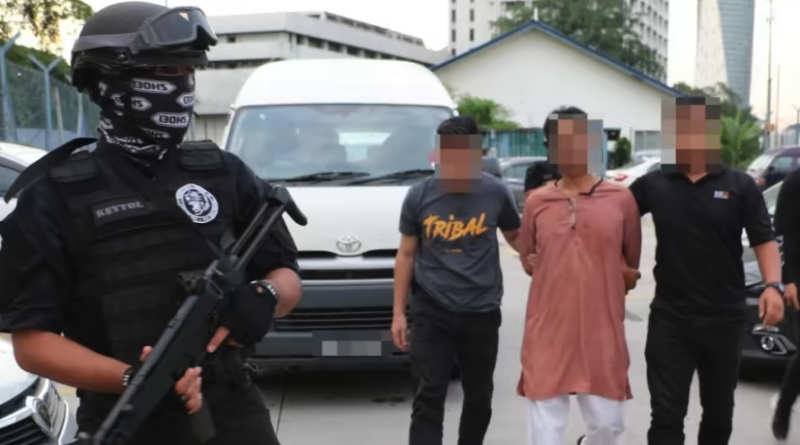Malaysia Arrests 36 Bangladeshis Over ISIS Links, Vows Zero Tolerance for Foreign Extremists
Kuala Lumpur – In a sweeping counter-terrorism operation that underscores Malaysia’s firm stance against radical ideologies, authorities arrested 36 Bangladeshi nationals suspected of promoting Islamic State (ISIS) ideology and plotting subversive activities on Malaysian soil. The arrests were part of a multi-phase crackdown launched on April 24, 2025, across the states of Selangor and Johor.
Malaysian Home Minister Saifuddin Nasution Ismail confirmed that the suspects were not only propagating extremist beliefs but were also involved in establishing clandestine recruitment cells aimed at indoctrinating members of their community with radical ISIS-aligned ideology.
Out of the 36 individuals detained, five have been formally charged under Chapter VIA of Malaysia’s Penal Code, which deals with terrorism-related offenses. Their cases are currently being heard in the Shah Alam and Johor Bahru Sessions Courts. Another 15 were handed deportation orders, while 16 remain under investigation by Malaysian authorities.
Extremist Plot Uncovered
Authorities say the group was collecting funds to support terrorist activities and aimed to destabilize the legitimate government in Bangladesh. The suspects reportedly operated under the guise of migrant workers while covertly pursuing militant objectives.
Minister Saifuddin stressed that Malaysia would not allow itself to be used as a staging ground for extremist plots originating from abroad. “Any attempts to make Malaysia a base for militant operations or a transit centre for extremism movements will be tackled with firm, quick, and effective action,” he said in a press briefing.
This warning comes amid growing concerns that radicalized foreign nationals may exploit Malaysia’s migrant and refugee communities to establish operational footholds.
A Longstanding Battle Against Extremism
The arrests were carried out by the Royal Malaysia Police’s Special Branch in a coordinated intelligence-led operation. Malaysia has a well-documented history of preemptively disrupting terror cells, particularly those with ties to ISIS and other global jihadist networks.
This latest operation reaffirms Malaysia’s zero-tolerance policy toward extremism, while also shining a light on the vulnerabilities within its migrant population. The country, which is not a signatory to the 1951 Refugee Convention, has come under scrutiny from human rights organizations for its treatment of undocumented migrants and asylum seekers. Many are held in immigration detention centres, often without access to formal refugee status determination procedures.
Balancing Security and Humanitarian Concerns
While Malaysia maintains the right to protect its national security, human rights advocates warn that genuine asylum seekers may be at risk of arbitrary detention or deportation if broader crackdowns conflate refugees with foreign extremists. The Home Minister’s comments indicate an effort to strike a balance between humanitarian concerns and safeguarding the nation from infiltration by extremist groups.
The incident also raises wider regional concerns about the spread of ISIS ideology within Southeast Asia’s migrant corridors, particularly involving vulnerable populations susceptible to radicalization.
As regional governments grapple with the post-ISIS era and the decentralized nature of global jihadist networks, Malaysia’s recent action signals a warning: South and Southeast Asia must remain vigilant against the silent resurgence of extremist ideologies operating under the radar.



